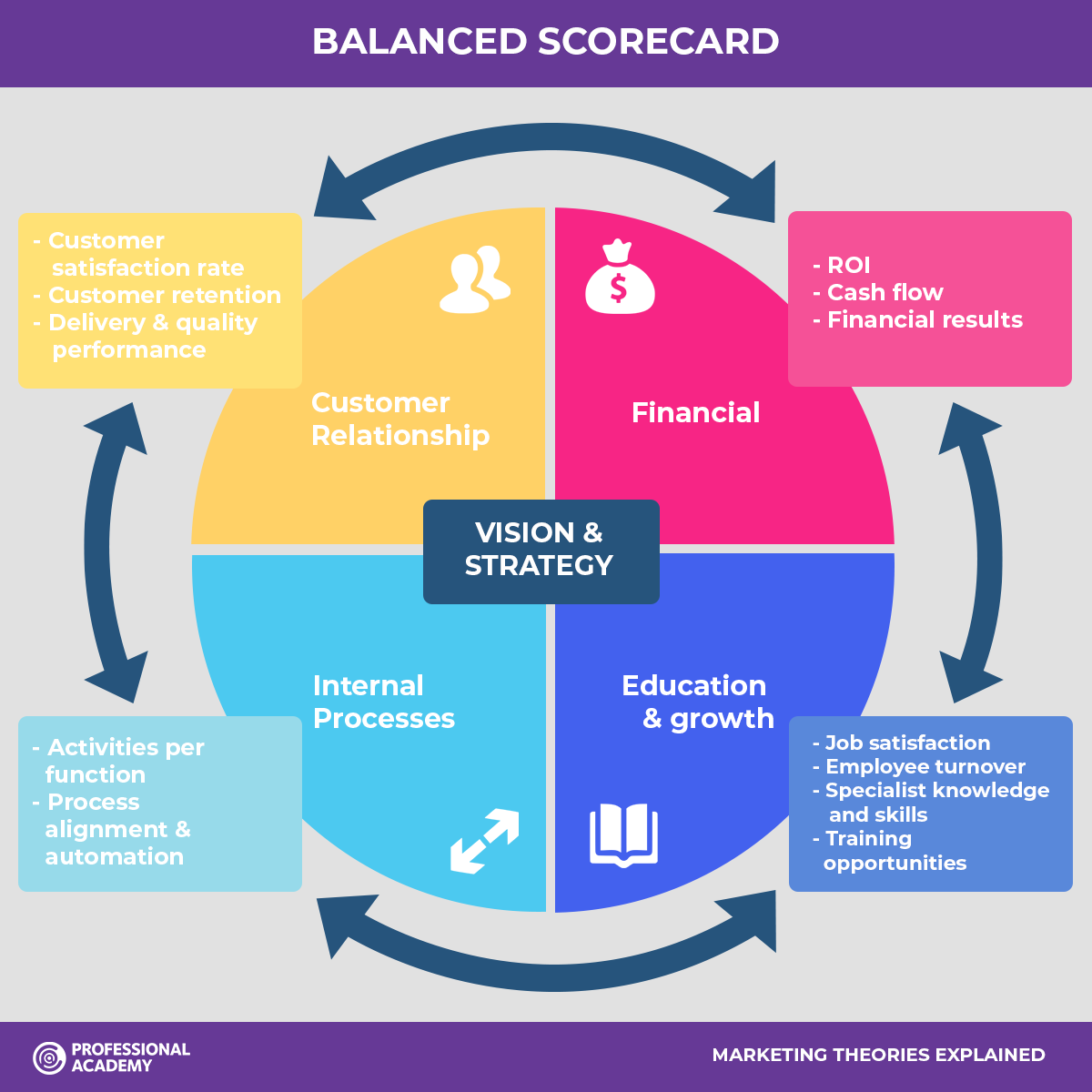



Visit our Marketing Theories Page to see more of our marketing buzzword busting blogs.
The balanced scorecard is a strategy planning and performance management tool created by Kaplan and Norton. In short it allows managers to see how well their businesses are being run based on whether the objectives of the company are being met, by the monitoring of staff and the execution of planned activities.
In order for a business to succeed it must set objectives in line with the overall mission and vision of the organisation. The balanced scorecard suggests that it is not only financial performance that equates to a successful business. Therefore it takes the perspectives of four different areas of the organisation and monitors their performance based on their individual objectives.
To do this certain conditions must be in place:

Learning and Growth
"To achieve our vision, how will we sustain our ability to change and improve?"
This perspective involves staff learning and training in order to improve the knowledge resource. Managers should be able to identify where they should be investing their funds for personnel development, not just through training but through mentor schemes and improving communication amongst staff.
Considerations for measurement include:
Internal Business Processes
"To satisfy our shareholders and customers, what business processes must we excel at?"
This perspective allows managers to see how well their business is performing based on whether their products and services are meeting the needs of their customers. Carefully designed metrics will be needed to monitor this area.
Considerations for measurement include:
Customers:
"To achieve our vision, how should we appear to our customers?"
For those of you aware of the marketing orientated business, opposed to the sales orientated businesses of the past, will know that customer satisfaction is now more and more at the forefront of every marketers, and therefore every business's mind. Marketers know that poor performance in this area leads to customers switching to alterative suppliers and if this is not addressed a future decline could continue.
Considerations for measurement include:
Financial:
"To succeed financially, how should we appear to our shareholders?"
At the start of this post we said that the balanced scorecard was a useful tool as it looks at areas other than finance to judge the performance of a business. This does not mean however that traditional financial metrics should be ignored and that is why they make up the fourth perspective. Financial metrics are still important to see exactly how profitable the business is.
Considerations for this perspective include:
By implementing a balanced scorecard in your business you can hope to achieve improved processes and customer satisfaction, more motivated staff and clear positive financial results.
You can see the benefits of using this tool, it helps to give a balanced overview of your company measuring it against its own mission and vision. It can be quite simple to design and implement as actions are directly matched to the desired outcomes. This is a tool which can be used for short, mid and long term performance measurement.
It is worth noting that there may not be one scorecard for the entire company but many scorecards for each department for example, which must come together in whatever reporting method preferred by your business. This will also encourage cross departmental integrated communications and the sharing of information to benefit everyone.
Our strategic marketing YouTube series features an episode on the Balanced Scorecard presented by marketing pro Peter Sumpton.
If you would like to develop your marketing strategy knowledge further why not look in to studying a CIM Diploma in Professional Marketing with Professional Academy? Contact us today for more information.
If you would like help referencing this blog, check out our Harvard Referencing Blog.